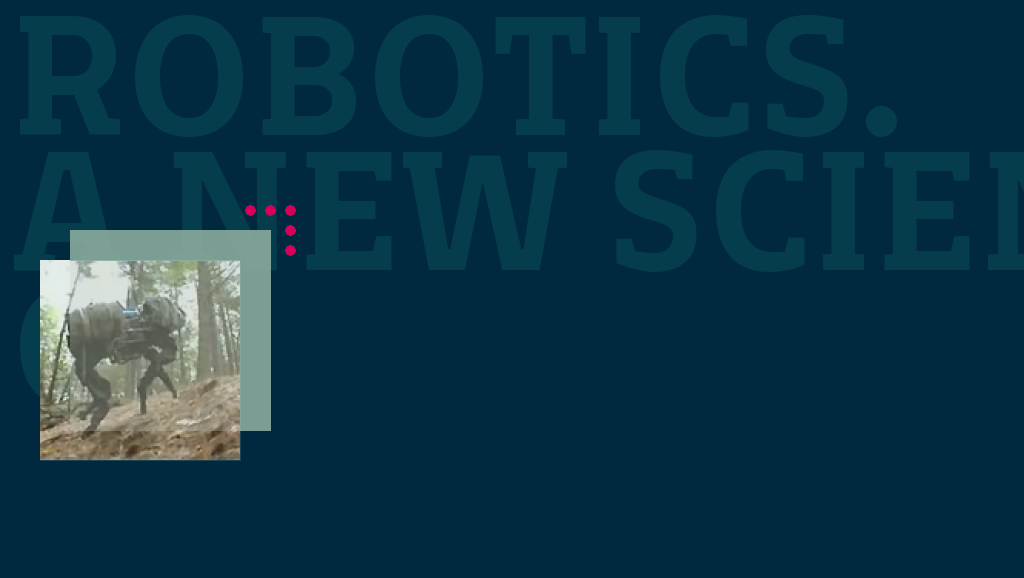Fiorella Operto offers some reflections on the conference “Robotics. A new science” that took place in Rome in February at the Accademia dei Lincei. A growing international debate proposes the re-thinking in ethical terms of a research area, robotics, that has been profoundly influenced by recent scientific and technological developments in the informatics, telecommunication, software and electronic sectors.
Robotics. A new science.
by Fiorella Operto
Robotics is progressively penetrating many spheres in our lives. Taking its lead form industrial robotics, service robotics has now entered our houses. The application of communication and web-based technology has created a broad sector of multi-use robotics. At the same time robotics research is contributing to important scientific and cultural developments. The challenge of constructing an intelligent and autonomous entity capable of actions or similar interventions – sometimes greater than human- requires a re-thinking of this new science of robotics from a global point of view, in a process that pushes physical and human science towards the common objective of knowledge.
Is robotics a new science or simply the sector of engineering that studies and invents autonomous intelligent machines?
It is certainly not easy to answer this question, because the robotics discipline is still in its early stages of development, but I believe that the challenge of building a mechanical replica of a biological organism brings such a qualitative leap forward, with respect to the sum of the necessary competences, that it requires a new scientific paradigm. The discussion of this theme is out in the open, as we saw at the symposium on robotics that took place at the Accademia dei Lincei on 20 febbruary 2008
Robotics unites knowledge from both physical and humanistic science, and employs itself in the highly original quest of both physically and mentally reproducing the typical properties of biological beings. It is this melting pot of mechatronics, automation, cybernetics and artificial intelligence, and their fundamental characteristics, that makes it different from other engineering disciplines.
The question is obviously open, but one thing is certain: approaching the problems of robotics from a science fiction viewpoint can cause a lot of confusion. This is why I think we need a consensual separation between literature involving autonomous robots and the real history of robotics. In fact at every conference and in every article there is some reference to Delado, Golem or Frankenstein. Without wanting to take anything away from these ingenious metaphors on the human condition, there is one thing that we can be certain of: robots do not have emotions, do not fall in love and do not suffer like we humans.
They have other properties, some of which are as interesting as our own, but profoundly different. A service robot equipped with ultrasound and infra-red sensors has a view of the world that we humans will never have. But it will never dream of turning itself from Pinocchio into a boy. It simply does the work that it was constructed to do.
I will never be able to press the point enough that computers will never evolve to resemble the living beings of this planet, because their origin, their physical structure and their intelligence is profoundly different. All this can be very interesting. In fact the originality of robotics means that its development goes beyond the known patterns of biological evolution.
The imprecision of common language, and the tower of bagel of technical language have themselves often generated confusion. We use the same words for different semantics. For this reason intelligence, autonomy, conscious, learning and so on have different meanings within different contexts. This could seem to help in promoting precise critical discussion, if the result was not the birth of frankly ridiculous debate, such as that on the rights of robots, while the discussion of much more serious and pressing problems remains beyond the horizon, such as those regarding the use of robots in warfare.
Finally we are becoming aware that the evolution of the famous intelligent weapon is nothing more than the development of autonomous robots with a license to kill humans. The question is very serious, in that humanity, is more or less knowingly constructing a new class of predators, robotically very intelligent but humanisticaly stupid.
It is not the improbable rebellion of these robots that should worry us, but the complexity of their algorithms of learning and autonomy, that make it impossible to see every detail of their behaviour in a hostile environment. To say nothing of the possibility of malfunction, be it caused by the enemy or causal, and of the risk of their engagement for illicit purposes.
Because of this, those people interested in robotics, (Gianmarco Veruggio and a lot of researchers in the bio-robotic sector and experts in ethics and science) argue that there is an immediate need for a serious international debate based on serious and correct information that would lead to the regulation of these non conventional arms, as has already happened with atomic, biological and chemical weapons.
Anybody who reads the newspapers should be convinced that a technological revolution is imminent. Robotics will without doubt be a formidable tool for progress, but will also create problems and questions that have so far been in the realm of science-fiction. Only four years after its birth, roboethics has become a useful cultural tool in stimulating the ideas of robotic researchers in terms of their responsibility towards society. This can be seen in the growing number of esteemed scientists that are interested in and participate in the debate, and initiatives and projects on this theme.
















